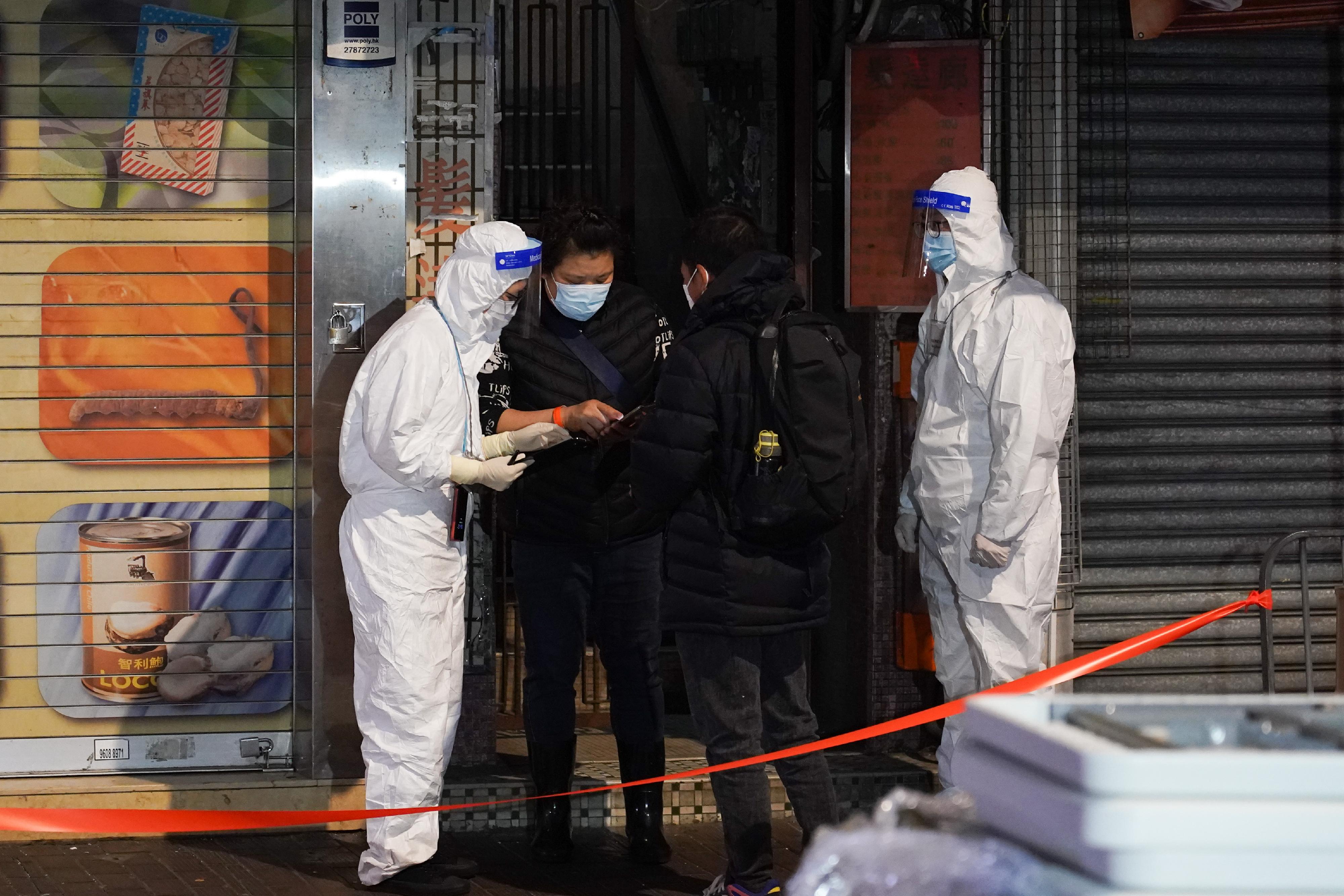The Food and Environmental Hygiene Department (FEHD) said today (January 17) that to provide further relief to the sectors directly affected by the tightened social distancing measures, applications for the Catering Business Subsidy Scheme, the Commercial Bathhouse Licence Holder Subsidy Scheme and the Places of Public Entertainment Licence Holder Subsidy Scheme under the fifth round of the Anti-epidemic Fund (AEF) starts today until February 18.
To provide relief for catering premises providing dine-in services, the new-round Catering Business Subsidy Scheme will provide a one-off subsidy ranging from $50,000 to $250,000 to eligible licence holders of general restaurants, light refreshment restaurants, marine restaurants and factory canteens in operation according to the floor areas of the premises as specified on their licences. It is estimated that the scheme will benefit over 17 600 catering outlets.
Moreover, for each eligible catering outlet mentioned above, if it is also running a karaoke establishment, nightclub and bar or pub and has closed the whole of its licensed premises as directed under the Prevention and Control of Disease (Requirement and Directions) (Business and Premises) Regulation (Cap. 599F), it is eligible to apply for an additional one-off subsidy of $25,000 according to the respective business.
The Government will also continue to provide financial support to licensees of eligible food factory licences in food courts inside shopping malls. “Food court” means a place inside a shopping mall comprising licensed food factories and an adjoining seating area (with both tables and chairs/stools) provided by the property management/owner of the shopping mall for non-exclusive use by its visitors, which may include patrons of the licensed food factories. Each licensee of eligible licensed food factories in operation is eligible for a one-off subsidy ranging from $10,000 to $50,000 according to the licensed area of its premises. If the business is not run by the licence holder, an affirmation of the business operator on supporting the application of the subsidy is required. About 1 700 licensees of eligible licensed food factories are expected to benefit from the scheme.
As regards cooked food/light refreshment market stall tenants as well as persons holding a hawker licence and operating cooked food business in public housing developments, each tenant or licensee is eligible to apply for a one-off subsidy of $25,000. It is expected to benefit about 1 000 operators.
Separately, the Commercial Bathhouse Licence Holder Subsidy Scheme will provide a one-off subsidy of $50,000 to each eligible licence holder of a commercial bathhouse. The Places of Public Entertainment Licence Holder Subsidy Scheme will provide a one-off subsidy of $50,000 for each eligible holder of a places of public entertainment licence (PPEL) (excluding cinema operators eligible under the Cinemas Subsidy Scheme) and $10,000 for each eligible holder of a temporary places of public entertainment licence (TPPEL). The schemes are expected to benefit the licence holders of around 50 commercial bathhouses, about 570 PPEL holders and TPPEL holders.
A spokesman for the FEHD reminded that corporate applicant shall hold a valid Certificate of Incorporation under the Companies Ordinance (Cap. 622) with status “live” as shown in the Integrated Companies Registry Information System of the Registrar of Companies throughout the application for this AEF subsidy. In addition, the applicant should not be bankrupt/wound-up or subject to any bankruptcy or winding up procedure/proceedings throughout application to the date of receiving the subsidy.
For eligible holders of food licence, liquor licence, karaoke establishment permit, commercial bathhouse licence and places of public entertainment licence, the application forms and guidelines can be obtained from various District Environmental Hygiene Offices of the FEHD starting from today. The application documents and details of the schemes can also be downloaded from the website of the FEHD (www.fehd.gov.hk). The applicants can submit their applications as appropriate through the FEHD website. They can also submit their applications to various District Environmental Hygiene Offices of the FEHD (to the corresponding licensing offices for liquor licences) in person or by mail. The deadline for application is February 18. For approved applications, the FEHD will disburse the subsidies by crossed cheques to the correspondence addresses of the licensed premises registered in the FEHD.
The FEHD will distribute application forms separately to its cooked food/light refreshment market stall tenants as well as hawker licensees who operate cooked food business in public housing developments. They do not need to make applications online.
The Government had earlier on provided financial relief measures to businesses affected by the epidemic and the Government’s various anti-epidemic and social distancing measures through a number of schemes under various rounds of the AEF, including the Food Licence Holders Subsidy Scheme, the Subsidy Scheme for Tenants of Cooked Food/Light Refreshment Stalls at FEHD Markets, the Catering Business (Social Distancing) Subsidy Scheme, the Food Courts Subsidy Scheme, the previous rounds of Catering Business Subsidy Scheme; the Commercial Bathhouse Licence Holder Subsidy Scheme and the Places of Public Entertainment Licence Holder Subsidy Scheme. Hitherto, a total of over $13 billion in subsidies has been disbursed to eligible applicants. read more


